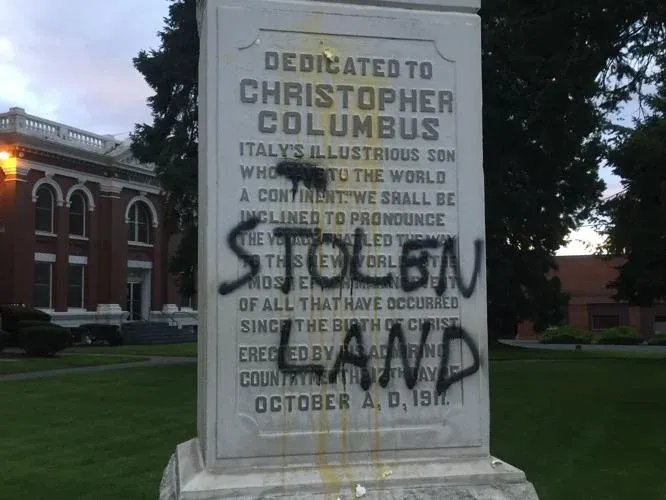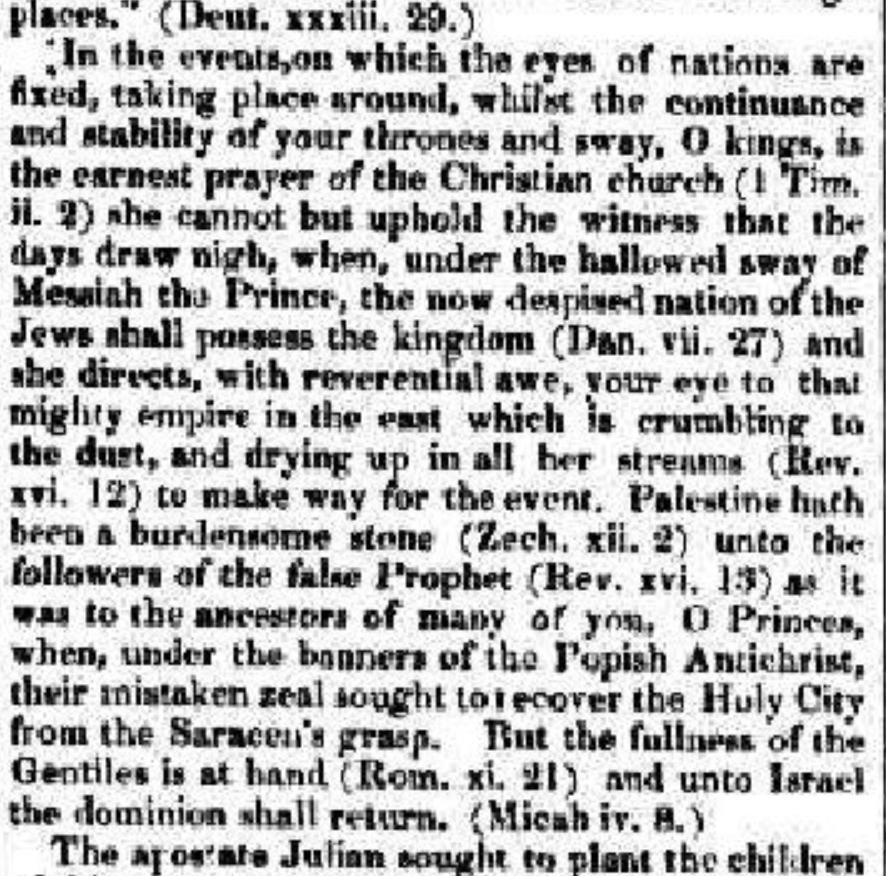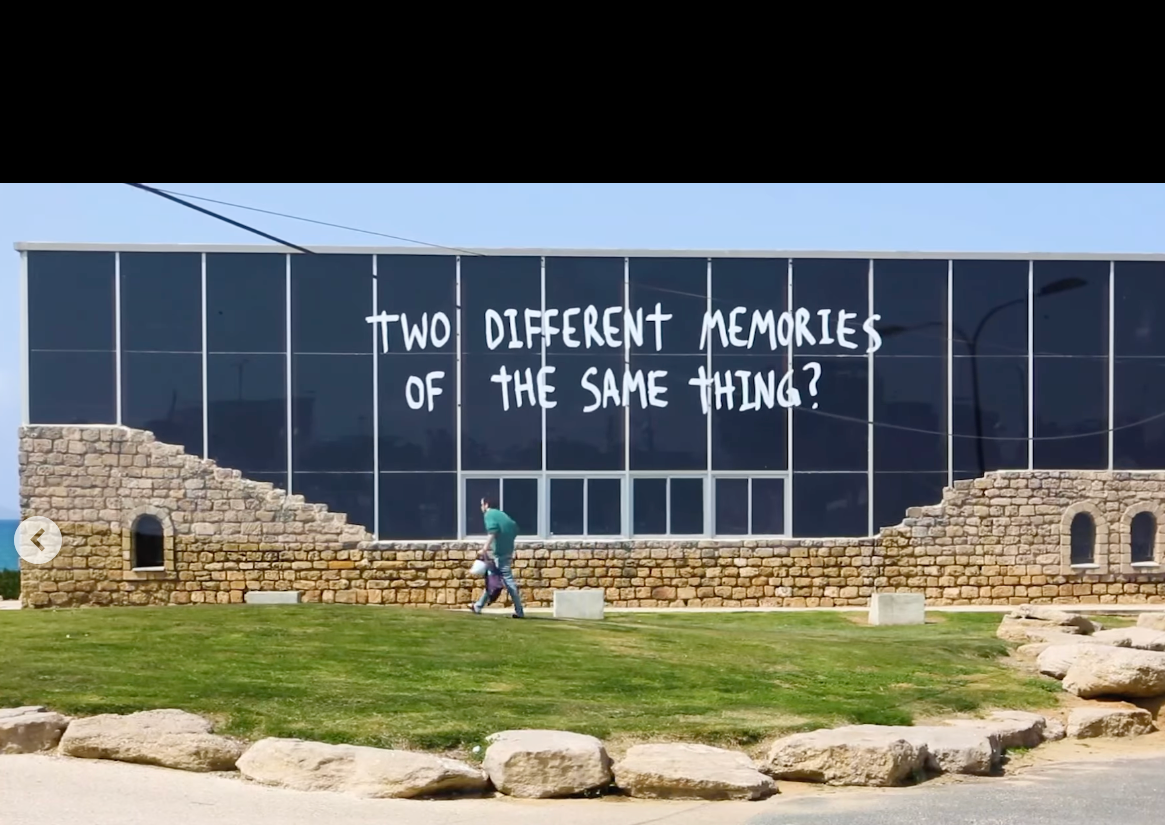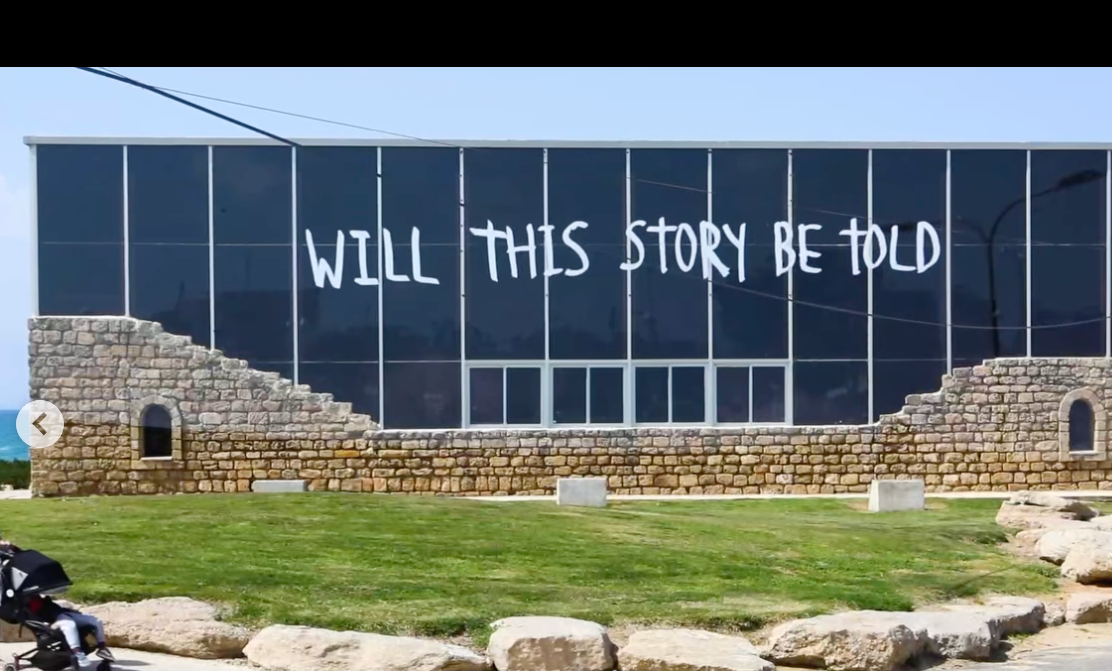Jews and Colonialism
tell every truth, push your understanding of power

This is Life as a Sacred Text 🌱, an everybody-celebrating, justice-centered voyage into ancient stories that can illuminate our own lives. It‘s run on a nonprofit, so it’s 100% NAZI FREE. More about the project here, and to subscribe, go here:
Welcome– finally!– to what I'm now slating as Part Two of this ongoing (intermittent) series on Jews in the U.S., and many of the larger tensions and questions and cultural ripples therein. (Here's Part One.)
We’ll spend the next handful of weeks on these interconnected topics, and then we'll climb the high dive to Deuteronomy. And that will be a wild ride.
But today's piece, I think, needs to happen for a couple of reasons.
First of all, we can't talk about Jews in the United States without talking about colonialism. I mean, we could– people do all the time– but I won't.
And second of all, there's a critical nuance that has been missing from many contemporary conversations with regards to Jews and colonialism (and, yes, Israel). We've seen how shouty people tend to get in all directions about this, especially on social media. So this feels important to name, and. who knows? It might even facilitate the arrival to common ground. (Either that, or it’ll make a lot of people shouty at me. Likely that will happen anyway?)
So with that lengthly introduction, let us begin.
The first Jew to arrive to the so-called New World was one of the original colonizers– on the crew with Columbus himself. He left August 3, 1492, three days after the deadline for Ferdinand and Isabella's Alhambra Decree– also known as the Edict of Expulsion– a traumatic mass expulsion of the entire population of Spanish Jewry, a community that had been in Iberia for 1700 years. [[1]]
Columbus went looking for gold, and wrote often of converting all races to Christianity. Luis de Torres, né Yosef ben Ha Levy – well, we don't know why he went, but even if it was purely because he couldn't stay where he was–
They both went.
And the impact on the land and the peoples of the land to which they arrived can never be fully named.

Early migration to the New World– both what's now North and South America– also included many Sfaradim, descendants of those cast out by the Edict of Expulsion. [[2]] (Sfarad is Spain in Hebrew.) Then came the wave of Jews from Central Europe– Germany and the like– who emigrated at a rate four times that of their non-Jewish neighbors because antisemitism was so bad, and then the waves of Eastern European Jews running from pogroms and the Czar after that, and then Holocaust survivors. All too often for us, it's been the same kind of story.
Jews have not been part of colonial projects in the same way that colonizing nations have.
But we have been, often, part of them. It's all both/and.
Often, Jews have been simultaneously settlers and refugees.
But those two things do not cancel each other out.
For example, one could look to Rebecca Clarren's excellent The Cost of Free Land, which reckons masterfully with her obligations, given that her great-great-grandparents fled antisemitism in Russia at the turn of the 20th century with their six children, eventually settling on a 160-acre homestead in South Dakota– on land stolen from the Lakota peoples.
Spain and England and France and Portugal colonized the so-called New World to steal land, to exploit, to take, to extract.
Jews generally did not leave the places we were living in order to steal, but rather: we were seeking safety.
And yet: Jews benefitted mightily from that exploitation, extraction, destruction and land theft.
There's a difference between a major European power's relationship to colonialism and Jewish refugee's.
But the Jewish refugee is nonetheless participating in colonialism.
And we are responsible for that.
We are not less responsible for our complicity in the theft of Indigenous land because we were on the run. That doesn't make the land less stolen. And it doesn't take away our moral obligations to do right by those who have been harmed, and from whose dispossession our families may have benefitted. Possibly grown wealth. Handed down that wealth intergenerationally. (Non-Black Jewish Americans have and continue to similarly benefit from the chattel enslavement of Africans and their descendants. [[3]])
Other people are still harmed, and we still benefit from that harm, and as such we have obligations. [[4]] (I say "we" because I am exactly that settler; every single one of my great-grandparents an Eastern European Jew who came to the US in the late 19th century because there was not safe.) We have obligations no matter how we landed on this patch of stolen land from which we have been benefitting– at the gravest of expenses to others.
I am a Jew. I am a religious minority in the United States. My family came here– some illegally, with forged papers– because they were refugees; and I am a settler. All of these are objective facts. They're not statements about whether or not I'm a good person or a bad person, they're just true.
The place where there is a question, where I do have choice and agency, is about whether or not I'm going to be a worthwhile partner towards a more whole world, most especially with regards to the places where I do have privilege in my life: I have white privilege, I have class privilege, I am a settler, I am educated, I can go through the list. But naming facts about where one benefits unfairly in an unjust society has nothing to do with whether or not someone is nice or mean. [[5]]
I'm not an inherently bad person because my great-grandfather was running from the Czar and made the best choice that he could to stay alive. Just as it's not my fault that I'm white in our white supremacist society. But as someone who unjustly benefits from systems and structures that have done– and continue to do– profound harm to others, I do have an obligation to work to dismantle those oppressive systems and help to bring into being the world that everyone deserves. I have a responsibility to be part of the solution. [[6]]
Members of the American Indian Movement are preparing to tear down the statue of Christopher Columbus at the Minnesota State capitol pic.twitter.com/8vLdELlxqG
— Max Nesterak (@maxnesterak) June 10, 2020

People dance around the statue. pic.twitter.com/6gIPTe9nBs
— Max Nesterak (@maxnesterak) June 10, 2020
So, listen. The modern-day State of Israel as it exists now was framed early on in the language of the day, as a colonial project. The early Zionists describe it as such. Let's not pretend that they did not. Here are some quotes:
The hawkish Ze'ev Jabotinsky, in his famous "Iron Wall" essay in 1923, writes,
“Every native population in the world resists colonists as long as it has the slightest hope of being able to rid itself of the danger of being colonized... That is what the Arabs in Palestine are doing.”
I'm literally just quoting Jabotinsky, here.
Menachem Ussishkin, another early Zionist with long streets named after him in several Israeli cities, said, also in 1923,
"The main reason for the immigration of Jews to Palestine is the consolidation and colonization of the land."
Arthur Ruppin, yet another member of the Streets Named After Him club, said in 1934,
"Our work is a colonization movement in all its aspects."
The "streets named after them" comment might read as flip, but it's really not. These men's names, in part as a result of their uttering these words, now literally cover over land that used to be called something else. By someone else.
AND we also have to name that not all of the ways the power functioned around the establishment of the State of Israel were equal.

Britain had a vision of Jews returning to the Holy Land that dates back at least to the 16th century.
As I mentioned not long ago, The Jews (tm) not converting to Christianity (aka the religion about Jesus, who was a Jew) was an ongoing theological problem for some folks– and with the advent of Protestantism, the need for a theological solution intensified.
Enter: 16th c. Calvinists and Presbyterians getting the bright idea that Jews would all go back to the Holy Land and convert to Christianity right before the whole End Times Sequence began.
This idea puttered along for a while, and was revived in the 1830s as the Ottoman Empire appeared to be weakening. There was an obvious political advantage in getting Jews to snag space in the Middle East while the Brits waited for the Ottomans to go, like a deeply colonialist version of the one friend who's stuck sitting alone for hours on a gigantic picnic blanket at the music festival until their other friends show up. [[7]]
Various things kept the Christian Zionist train rolling, like George Eliot publishing Daniel Deronda, an influential Victorian English aristocratic novel with Jewish characters, some of whom had Zionist Longings (tm). [[8]] Some suggest that the novel even paved the way for Balfour.
That is: By mid- WWI, the British government had issued the Balfour Declaration– the announcement that they supported a "national home for the Jewish people" in Palestine. There were a lot of reasons that it happened, and that it happened then– principally, it was a key time to get that "friend" out to the colonialist picnic blanket. And there's correspondence from key British officials of the time; they were glad to have the Jews "cope with the Arab population" and take on internal management of the area. (And sometimes the Brits spoke in affirming ways about Palestinians and disparagingly of the Jews). of the And more than that, Balfour was a strategic move because Britain was worried that American Jews would encourage the US to support Germany in the war against Russia. And some British antisemites were convinced that the so-called international Jewish cabal could bring about the collapse of the Turkish government.
Not a single one of the reasons was about care and concern for the welfare of the Jewish people.
This decision came out of imperial concerns about its own power politics, mixed with a theological agenda and, perhaps, the antisemitic desire to encourage the Jews to go... elsewhere.

The State of Israel wouldn't have existed if it hadn't been convenient for Various World Powers, based on their own agendas, for reasons that had nothing to do with Jewish welfare. We can name that, yes?
Just as we can name, as realists, that the U.S.' sending of weapons to Israel isn't about care and concern for Jews, but rather its own strategic interests. [[9]]
As Patty Krawec, the Anishinaabe author of Becoming Kin: An Indigenous Call to Unforgetting the Past and Reimagining Our Future notes,
All colonial projects need a metropole [a colony's parent-state], and Israel's metropole is the US and Britain.... I try to emphasize that when I talk about it, because far too often, leftists go in for the conspiracy theory-laden tropes in their defense of Palestine, and it really isn't helpful.
From the vantage of many Jews:
We were kicked out of the Land of Israel by the Romans, dumped into Diaspora, many of us expelled from country to country, expressed religious longing for homeland in theology and prayers for over 1500 years.
(I want to pause here and say: Before you keep reading and get angry that I'm not talking about Every Jewish Story, Everywhere, Including Yours, I can't. I never meant to. I'm trying now to thread the needle around the establishment of statehood, and a few key moments leading up to that.)
And then modernity happened: A few weeks ago, we talked about the move of some Jews to assimilate into the wider European society, and how after Emancipation, some Jews worked to integrate into the surrounding culture.
Well, despite the attempts towards respectability, there was nonetheless a spike in antisemitism in the late 19th c. across Europe. Theodor Herzl was a big assimilationist who became disillusioned with that as a tactic for keeping Jews safe– whether because of the Dreyfus Affair or the rise of an antisemitic demagogue to power in Vienna, the over 200 pogroms and other antisemitic attacks in the Russian Empire in 1881 and 1882–that then continued on for several more years–or some combination of things.
As far as these early Zionists could tell, nationalist independence was the only way to freedom. Theodor Herzl is famously quoted as saying,
"Let them give us sovereignty over a piece of the Earth's surface, just sufficient for the needs of our people, then we will do the rest!"
This idea of Zionism sprouted from the fact that Jews were deeply unsafe, of looking for a place that pogroms could not touch– literally.
The horrific Kishinev pogrom (in what's now Moldova) of 1903 was a major catalyst for the bourgeoning Zionist movement. Max Nordau, a Zionist leader from Hungary, declared shortly after the tragedy,
“The name of Kishinev [is] written with letters of blood and fire . . . Zionism is the only way to lead our miserable brethren in Russia and elsewhere out of their present hell.”
As historian Derek Penslar puts it, Jews
“wanted to be free, they wanted self-determination, and they wanted the kinds of things that colonized people in the world wanted. And the consensus was that they would realize their freedom in the Jews’ historic, biblical, and spiritual homeland in the land of Israel, which is the same thing as historic Palestine.”
And. It's an undeniable truth that this Jewish return to the Land of Israel has been a profound, well, nakba–catastrophe– for the Palestinian people in every conceivable way, on every conceivable, measurable level.
And. Many, most or even all of these early Zionist leaders (scholars might debate which of those might be the appropriate phrasing, here) were willing for this liberation to come at the expense of a whole other people. Some were explicit about that, some perhaps more veiled in their thinking– that is, through racist supremacist thinking that denied Palestinians the same level of humanity, dignity and agency that they extended to themselves. And some were, possibly, deluded, naive, or something else. For now I will say: I struggle to ascribe intention when I don't have evidence, but regardless: We must reckon with the impact of these choices.
And we can remember that, likely, most of the Jews fleeing trauma and danger and arriving to the Holy Land weren't aware of the impact of their arrival on the local populations in the way that (some/many/most/all (?) ) 0f their leaders were. The leaders were the one building– say it with me folks, all together now– systems and structures.
And many of the Jews who made it to the land of Israel– from many points around the globe– would have been murdered if they had not gotten there.
And the Israeli government has made the choice to create and sustain Occupation for decades, and to commit atrocities against the Palestinian people not only this last year, but including during this time.
(And, yes, Hamas has also committed atrocities and they are not the focus of the conversation today).
All of these things are true.
Again, the fact that the British relationship to colonialism in that patch of land is not the same as the Jewish relationship to colonialism in that patch of land does not mean that it's just for anyone to elide the impact. Especially given the choices made by the Israeli government over the last many decades.
Nor does it mean that Jews do not have an ancestral or historic relationship to that soil– nor does it mean that there have not been Jews living there continuously all along.
All of these things are true. At the same time.
Non-Jewish friends:
When you fail to acknowledge that anti-Jewish oppression is generally part of this story, Jews often feel unseen, defensive, and– candidly– deep trauma is sometimes poked. It gets harder to have a conversation. Especially given the layers piled on top– many of us are connected to someone who was murdered on 10/7 or taken hostage, many of us have personal stories about suicide bombing near misses or lost loved ones. The triggers aren't theoretical, nor is the context. And remember, the universal conspiracy theory about Jews is that Jews supposedly have more power than we actually do– we're ostensibly running the media and the banks and pulling all those puppet strings behind the scenes, right? So when you act as though our experience is one of all privilege, no pain, we begin to wonder what you actually think is going on.
And remember: As historian of the British Empire Priya Satia notes,
“You can have that conversation and acknowledge that historical reality without implying that everyone needs to leave,”
just as we do about the history of Seattle, Toronto, Boston, Detroit, and so many other places. All the more so once we recognize that we're talking about people who have been in this place for– even if they came in the late 19th or earth 20th c., say– many generations, now.
Jewish friends:
Please try to hold that we can be both harmed and harmers. Because we can. And "settler," if and when it is the correct word for our situation, is not an insult, it's a factual statement that describes many of our relationships to power. [[10]] [[11]] It is one kind of privilege in a society built on a series of interlocking oppressions.
What would happen if we all acknowledged that
a) there's a lot of colonialism up in here
b) We could try not to flatten our power analysis when we talk about colonialism and the relationship between Jewish people and imperial nations? Particularly in the early days when we had basically no power of any kind?
c) None of these things means that it's fair to exempt most Jewish people– the immigrants or descendants of immigrants to what's now the US, or Canada, Argentina, Australia, (or–etc.), or Israel, from reckoning with the Nakba or the genocide of Indigenous peoples on Turtle Island or any of the events in those places since then. And none of these things means that we shouldn't be thinking about what repair could look like– genuinely, thoughtfully, open heart-fully. [[12]]
This is, I think, why people are so stuck here.
Because we want to force a binary picture in which there are teams, and there are flags, and there are clear answers about who is the Good Guy and who is the Bad Guy. But my friends, this is the real world and a lot of things are true at once. Even if that does not always deliver a straightforward narrative.
I live on lands stolen from the Potawatomi people.
This tree? That lake? These birds? They are part of the home of someone else who is not here. Someone who has been deprived of their home-lands (if you will) so that I could be here.
When I accept this, I take on obligation – but I get to live the truth.
No delusions.
My own family's stories around coming here have a lot of pain in them, but that doesn't exempt me from my own participation in the forced displacement of a people who cannot be home because I am here. I am both a descendant of refugees and a settler.
What needs to be held, in all of these sentences put together, is grief.
So much grief for all of the ancestors who deserved to thrive where they were, who deserved so much better than the suffering they endured.
And for all those today suffering now.
Grief.
And responsibility.
In his last-ever interview, in 1972, Rabbi Abraham Joshua Heschel said,
“Morally speaking, there is no limit to the concern one must feel for the suffering of human beings. Indifference to evil is worse than evil itself, [and] in a free society, some are guilty, but all are responsible.”
An understanding that we have obligations. To those we have displaced. To creating a more whole tomorrow.
To naming what has been done.
That's the beginning.
What would happen if we told all the truths together, all in one place?
There are always things we see more clearly in hindsight. With On Repentance and Repair I did name what I perceive to be one of the most significant hurdles with regards to Israel/Palestine, but I regret not spending more time on it and unpacking why it matters. It matters that in Israel/Palestine, there are, as I put it in the book, "places where groups perceive competing truth claims about historical events." That is to say, where people have different ideas about what exactly is happening, about what happened. About where reality is anchored.

I suspect that probably both Black and white South Africans could agree on what apartheid's basic concept was, even if they might describe it differently. Here, even basic facts about what has happened are in dispute, still. Widely.
This is why I emphasize the critical need for the first stage of repentance– as I articulate Maimonides– to be done thoroughly and thoughtfully with regards to national repentance work.
Moving forward cannot happen thoughtfully until we tell every single truth.
All the ones that shouldn't line up together but they do somehow anyway.
We have to tell all the truths that say– this person isn't supposed to have suffered, I'm not supposed to feel compassion for them, their story isn't valid. Because if it is, that might mean something I don't want to look at.
We tell every truth, we hold every power relationship in balance. We acknowledge all of the pieces.
Two* peoples live in the land between the river and the sea.
Two* peoples are not going anywhere.
*or more, depending on how you count
There is much with which to reckon.
So now what?
There are ways forward that have not been tested, or even yet conceived– answers to the question, "Now what?" that are more interesting and thoughtful and can get us further and faster than many of the arguments I have seen about a lot of things online recently.
We must ask questions like:
- Where are all of the truths about harming, being harmed, fear and culpability, all the places where power exists in all its dimensions?
- What is needed to restore balance after the telling of truth?
- How can we create a more whole future together?
Is there any other way?

And then we must find our way forward, in relationship.
With deep engagement around responsibilities and obligations.
Whether or not all that which is truly owed can ever be repaid.
We must nonetheless continue to try to find our way forward, together.
by Aurora Levins Morales
from her forthcoming book, Rimonim: Ritual Poetry of Jewish Liberation
Every day is a land day somewhere.
People land upon each other,
steal the way the light fell through
particular trees that are gone,
tear up villages and gardens
as if they were weeds, weed out
particular people who are gone
from land that no longer holds
the way their laughter drifted through
open doors along with the smells
of their cooking. We land and are
landed upon, so what
does the windblown milkweed
seed say to the field’s edge, already filled
with fireflies and sassafras,
what does the tulipán say
shouldering in among roble blanco,
capá prieto? We choose, we
settlers in the grass, we
un-native to these fields,
these felled woods, these
cane fields and cafetales,
these houses built over graves,
we get to decide, we do not
have to be invasive
maybe the milkweed
rests lightly among the cattails
listening to the night
listening to how each part
sings, how the birches
and the earthworms
are speaking, we could
be like that, we could
listen, all our lives
be like the common
plantain, low to the
ground, rooting only
where there is room
between the conversations
of moss and stars,
join, not destroy, the ecosystems
join, not erase, the whole story
listen to the particular
crimes committed.
lean into their cold truth,
say yes this happened.
taste the ash of it, without
turning away, without lying about
any of it, yes we could
shred the deeds to
these houses built over graves
these manicured, gated
fictions about who
has the right to what, and tell
on ourselves, tell how our
family photographs, people
with our noses, eyes, hair
fleeing hunger, war, pogroms,
therefore always
one foot out the door,
tried to buy belonging, force
other people’s land to be home.
we could stay, both feet here
we could change
ourselves, not the stolen land.
become something else.
not, no matter how long we stay,
not native, we could just
root where we are,
in the crux of history
in the truth of it all
not so the land will belong to us
it can never
it is full of other people’s stories
we do not need to own their losses
or the way the light fell,
we do not need to
rename everything after
ourselves, piña is not an apple,
we lost the apples
we came across water in
leaky boats, we miss
a different light
but so that we can
not clearcut history, not plow
the wildflowers of the prairie
into acreage, but lie down in it
and be stained, overgrown,
we could adapt, cross-pollinate, become
naturalized, become common,
be low to the ground, rest lightly
honor the people, still here,
long before us
belong to the land.
#LANDBACK RESOURCES
Turtle Island-based
I talk a bunch about #LandBack in On Repentance and Repair, but suffice to say, it doesn't mean: suddenly you sleep on the sidewalk.
It means, wow, there are actually a lot of different ways to return land back to its Tribal stewards: returning copious land now possessed by the government (national, state, and local parks, for example) bequests, nonprofits buying land, so many more. And increasingly people have begun paying rent to the Tribes on whose land they reside– an appropriate tax for the stolen land.
As Natalie Diaz (Mojave/Akimel O'odham) writes,
"It's not about blood and it never has been. It's about how you arrive and build a relationship with the land you're on. And then once you're there, it's also about how you receive others."
Figuring out on whose land you are is the first step– this is a helpful tool. From there, it's pretty easy to click through to the main tribal websites, for starters.
Sena Crow suggests,
Paying rent to a community every month is also an opportunity for non-Natives, and specifically white settlers, to consider and reflect on what it means to live on this land... However, not every Indigenous group will have a program as direct as Real Rent. Some communities have opted into building a land trust to reclaim land and autonomy. Keep this in mind: this is all really about redistributing settler capital so that Indigenous folks can acquire the means to be sovereign.
If you can't find a local tribal organization to support– or, better yet, in addition!– you can also support orgs like the National Indigenous Women’s Resource Center, the American Indian College Fund, or The Nii’kinaagana Foundation.
And if you read one book for framing, I'm a big fan of Becoming Kin: An Indigenous Call to Unforgetting the Past and Reimagining Our Future by the wonderful Patty Krawec. Her Ghost-powered newsletter is here. Also want to say miigwech to the amazing Kaitlin Curtice, whose work you should also read copiously. I love both Living Resistance and Native. Here’s a gorgeous video with a gorgeous clip of her gorgeous work. (Instagram embeds are being a punk) and here's her newsletter.
A Tshuvah Ritual
Sep 29, 2pm ET/ 1pm CT / 11am PT, With Ilana Sumka, rabbinical student and founder of the Center for Jewish Nonviolence and Shelimut. This is a participatory ritual to begin the work of collective Jewish tshuvah – repentance and repair– towards Palestine and Palestinians, to chart a path for a future in Israel/Palestine using an ancient Jewish practice designed to rectify harm caused and a commitment to do better in the future. (I have seen the ritual plan, can confirm that it's thoughtful and sensitively done.) Register here.
🌱🌱🌱🌱🌱🌱🌱🌱🌱🌱🌱🌱🌱🌱
Like this? Get more of it in your inbox every week. 🌱
For free every Monday—sign up at the ‘Subscribe now’ button just below.
And if you become a paid subscriber, that's how you can get tools for deeper transformation, a community for doing the work, and support the labor that makes these Monday essays happen.
A note on the subscription model:
I want my work to be as accessible to as many people as possible, in as many ways as possible. That's why the Monday essays are free, and why we donate subscriptions to anyone for whom paying is a barrier to the House of Study posts.
I also believe people should be paid fairly for their work. Needless to say, these two values sometimes seem to be in conflict, but I do what I can to find a fair balance. I offer many resources for free, and charge for others. When you donate generously or pay at the top of our scale, that helps support the work I do, provides access for those who have fewer resources, pays for the infrastructure and the technical and practical support that it takes to do this, and helps us keep the work sustainable.
And as always, if you want in to the Thursday space but paying isn't for you now, just email support@lifeisasacredtext.com and we'll hook you up.
And if you’d like to underwrite one of these donated subscriptions, you can do so by signing up at one of the higher subscription points.
And if it resonated with you, please share this post.
Sending a big pile of blessings and goodness your way. 💕
FOOTNOTES
[[1]]: As a result of the Alhambra Decree and the persecution that led up to it, over 200,000 Jews were converted to Catholicism under duress, and as many as over 100,000 were expelled. Many died of hunger, thirst, and plague, were enslaved, banished to remote islands, robbed on their travels, and suffered in other horrible ways. HaLevy converted on August 1, 1492, the day before the departure of the Pinta, the Niña, and the Santa Maria– a condition of his participation in the voyage, unsurprisingly. That same day– August 2nd, 1492– was the day by which all Spanish Jews had to have converted or been expelled.
[[2]]: I could be here all day with stories of the first Jews to settle in what's now the US, but I'll just note that the first real community of Jews arrived in 1654, and their story is emblematic of the whole thing, too. 23 adults and children fled Recife, Brazil–which had just been taken over by the Inquisition-era Portuguese from the Dutch– for New Amsterdam, future home of the bagel and the egg cream. Peter Stuyvesant, the governor at the time, was loath to allow in this "usurious and covetous" people, lest it open the door for the "Lutherans and Papists" next. But who forced his hand? Uh, the Dutch West India Company. Once again: a group of people running for their lives, freedom and safety, protected and saved by an exploiting power. What to do with that information? We can decide together. But let's put the facts– and the power analysis– in one place.
[[3]]: This isn't the main focus of this piece, but I'll point y'all at Rabbi Aryeh Bernstein's Torah Case for Reparations, and note that On Repentance and Repair discusses accountability for the harms of enslavement and systemic racism at a number of points. TL;DR amends without transformation will result in the same harms being perpetrated again and again, in different forms. Reparations must be accompanied by work to unseat white supremacy in all the places it is found.
[[4]]: Obviously, there are Jews who are both Jewish and Native, and lots of other Jewish stories globally that aren't part of today's conversation. I'm doing my best to speak in particulars without making every/all statements, please understand this attempt even if the final rendering is imperfect.
[[5]]: Obviously, if you are making wealth by actively exploiting or harming other people– well, we can have a different conversation. But waking up one day and being the product of privilege isn't the same. (Which isn't to say that it might not be worthwhile to interrogate where inherited wealth came from and at whose expense, in which stocks might an inheritance be invested and do they help make a more just world, are there amends to be made and if so to whom and in what way, etc.)
[[6]]: And I'm also not a better person for being, eg, queer or disabled, it just means that certain things in my life have been harder as a result of these things. All liberations are a group project. We all gotta show up for each other. It's collective work or bust.💥
[[7]]: Needless to say, the threads of antisemitism running through the "gosh, why don't the Jews just convert to Christianity already???" theology, as well as other kinds of antisemitism floating around English society, made many people perfectly happy to encourage the Jews to leave Britain and go to live far, far away.
[[8]]: Remember, it's not a Jew-authored book. The Jewish characters yearn for "national life which has a voice among the peoples of the East and the West—which will plant the wisdom and skill of our race so that it may be, as of old, a medium of transmission and understanding." AKA we Jews, firmly established in our own country, will finally be useful to others! 🙃
[[9]]: Just do a scan of all the places in the world where there are people in great need today to whom the US is not supplying arms. Yidden, this is a strategic decision by a major world government, not a choice made because of emotion or etc.
[[10]]: Notice that I said "many." No, I'm not weighing in on all the cases everywhere. And it should be named that (again, not speaking in absolutes) but many Mizrahi Jews' lives and positionality viz. Palestinians was initially much more complex. Do with that what you want. Have a nice day.
[[11]]: Thank you to Patty Krawec, Daniel Delgado, Rabbi Megan Doherty, Rabbi Avigayil Halpern, Em Fishman and Gila Axelrod for notes on this piece.
[[12]]: And d) This post cannot cover all of the nuances of every side, all the ways the story of Jews in the US and the story of Jews in Israel are both similar and also different, and there's still probably so much to be said on every conceivable side. I don't claim that I've captured all of it– but this thing is already far over-bloated on word count as is. This is the beginning of a conversation.






